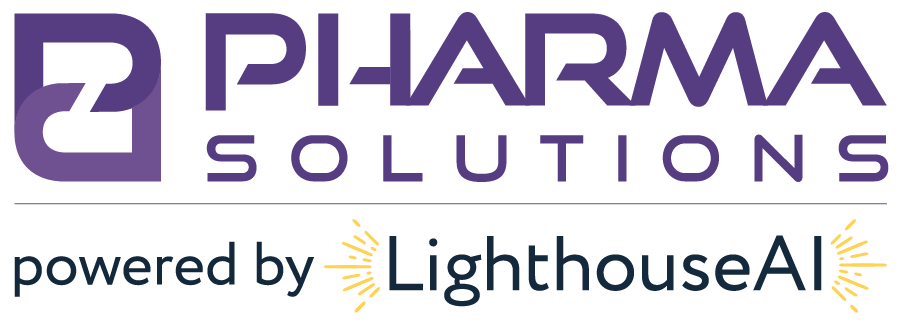
FDA Proposed Rules Review, Part 2 of 4:
3PL Licensing Standards & Approved Organizations Oversight
Written-by: Sumeet Singh, CEO
FDA Proposed Rules. In this second part of the review of the FDA’s proposed rules, we focus on the national standards the FDA seeks to levy on Third-Party Logistic Providers (3PL) and Wholesale Drug Distributors (WDD).
The FDA proposed rules introduced in February 2022 have been long awaited by the industry since November 2013, when the DSCSA was first passed. The proposed rules seek to implement lessons learned and shore up deficiencies from the historic Prescription Drug Marketing Act of 1984, the original federal regulation of the drug supply chain.
Subpart A: National License Standards for 3PLs
Subpart A of the FDA Proposed Rules is dedicated to the National Licensing Standards of the FDA. In general, most standards in the proposed rules are not surprising compared to state regulation and industry best practices. However, there are some interesting aspects that will affect how business is conducted.
The expected:
- 3PLs must be “authorized” per the DSCSA, holding both (1) a license in the State in which it conducts 3PL activities and (2) reporting all licenses to the FDA.
- 3PLs will have to obtain a license from the FDA if the State in which it conducts 3PL activities does not have an established licensure program.
- The facility that the 3PL owns or leases which serves as a warehouse for products is the facility that must be licensed.
- Trading partners contracted to work at the facility do not have to obtain a separate license.
- Proposed § 205.8 provides that 3PL licenses, whether newly issued or renewed by the licensing authority, expire three years from the date of issuance or renewal. Additionally, 3PLs may not submit renewal applications more than 90 days before the license’s expiration date. The 3PL’s license will remain valid if there are administrative delays by the licensing authority past the expiration date.
- Proposed § 205.9 provides that a licensing authority must deny licensure to a 3PL based on specific circumstances. Denied applicants can appeal the said denial.
- The licensing authority may also suspend a current 3PL license, granted that suspended 3PLs have the ability to appeal the said suspension.
- Proposed § 205.12 details the specific elements that such written policies and procedures must contain.
- Proposed § 205.13 provides various record keeping requirements, including that all records must be retained for of 3 years. Records related to suspect and illegitimate products, product quality complaints, destroyed, returned, and recalled products, must be retained for 6 years.
- Proposed § 205.15 provides that annual reporting of licensure to the FDA be expanded to provide complete and useful information about 3PLs that can be used by the FDA, States, and trading partners. This includes “significant disciplinary action,” which is defined as an action that limits the ability of a facility to conduct 3PL activities related to the distribution of prescription drug products.
- Proposed § 205.16 provides that a physical inspection of a 3PL facility be conducted before issuance of the initial license and routinely once every 3 years thereafter.
Interesting Aspects:
- FDA does not intend to enforce the licensing requirements for 3PLs until two years after the final regulation is published.
- FDA will license 3PLs directly if the State from which a 3PL conducts 3PL activities has not established a licensure requirement in accordance with the regulations, per Section 584(a)(1)(B).
- DSCSA permits FDA to approve third-party organizations, referred to as approved organizations or AOs, to evaluate a 3PL’s qualifications for licensure (section 584(d)(2)(A)-(B) and 584(e) of the FD&C Act). This is reviewed in further detail in the next section of this article.
- 3PLs with existing State licenses must obtain new licenses when the FDA rule is implemented.
- A 3PL will need to apply for new licensure if the 3PL fails to timely renew its application.
- The FDA proposed rules don’t include requirements for personnel background or toxicology screening, but call it out as a “best practice” that should be implemented.
- Proposed § 205.10 fleshes out complete requirements for personnel requirements, including that a facility manager/designated representative must only work at one facility, undergo a background check, and must be accountable for all operations of a 3PL facility
Deviations From State Regulation and Industry Best Practices:
- Proposed § 205.4(a)(3)) provides that if the 3PL is licensed by FDA, the 3PL is not required to obtain a license from the State into which the product is distributed.
- Proposed § 205.4(c) provides that 3PL licenses be facility- and owner-specific and not transferable to another establishment or owner. A change in the location or the ownership of a facility will require a new license per Proposed § 205.7(b) and (c).
- Other changes to the information, must be submitted electronically to the licensing authority within 30 calendar days of the change. Other changes may include, for example, any changes in the information submitted as part of an application for licensure.
- Good Storage Practices for 3PL Facilities in proposed § 205.10 shall apply to each 3PL facility owned, rented, or leased by the 3PL.
Subpart B: 3PL Accreditation Organization Oversight
Subpart B of the FDA Proposed Rules is dedicated to the oversight of third-party organizations, referred to as approved organizations or AOs. AOs will evaluate a 3PL’s qualifications for licensure, referred to as a “Licensure Review,” on behalf of the FDA and states. Proposed §§ 205.17, 205.18, and 205.19 contain the process the FDA will use to approve organizations and the qualifications to become an AO.
Proposed FDA Licensure Process
The proposed FDA licensure process follows a typical State licensing process, with the exception that the inspection is outsourced to an AO.
- 3PL applicant applies for federal licensure with the FDA electronically.
- The FDA will review application documentation. If a review of documentation supports licensure of the 3PL facility, the facility will be approved for inspection by an AO.
- AO’s licensure review be completed within 90 days upon receiving notice from the Agency to conduct the licensure review. The process that AOs should follow when conducting routine inspections of 3PL facilities mirrors the process for licensure review.
- A Licensure Review consists of reviewing all documents submitted to the licensing authority in support of an application for 3PL licensure and conducting an inspection of the facility as directed by the licensing authority.
- Upon completion of the licensure review, the AO would then provide the FDA with a licensure review report within seven days, with a copy sent to the 3PL facility
- Using the report submitted by the AO, the FDA would make the final determination as to whether a 3PL facility should be issued a license.
AO Approval
The proposed process that the FDA will use to approve organizations, including the application process, and the process for suspending or revoking an organization’s approval, are set forth in proposed § 205.19. The approval is to last five years and is contingent on a satisfactory audit by the FDA.
Requirements to keep approval include maintaining certain records for at least 5 years and having them readily available upon FDA request. Additionally, AOs must provide training to employees before they may conduct licensure reviews.
AO Disapproval & Loss of Approval
The Proposed Rules outline may cause an AO applicant to not be approved by the AO. If an AO applicant is denied, there is an appeals process available.
Once approved, there are a handful of reasons why an AO might lose its approval (e.g. suspended or withdrawn). Fortunately, however, FDA has proposed that the approval status of the AO that performed the licensure review for a 3PL facility will not automatically affect the licensure of a licensed 3PL facility that is otherwise in good standing.
PART 205: National Standards for Third-Party Logistics Providers and Prescription Drug Wholesale Distributors
-
-
- Subpart A–Third-Party Logistics Providers Licensure Standards
- 205.4 Requirement that third-party logistics providers be licensed.
- 205.5 General application requirements for licensure.
- 205.6 Federal licensure process.
- 205.7 Changes to information, location, or ownership of a licensed 3PL.
- 205.8 Expiry and renewal.
- 205.9 Licensure denial, suspension, reinstatement, revocation, and voluntary termination: notice and opportunity to request a hearing.
- 205.10 Good storage practices for 3PL facilities.
- 205.11 Personnel requirements necessary for good storage practices.
- 205.12 Required written policies and procedures.
- 205.13 Recordkeeping and document maintenance.
- 205.14 3PLs must provide upon request a list of trading partners.
- 205.15 Requirements for initial and annual reporting to the Food and Drug Administration.
- 205.16 Inspections.
- Subpart B–Approved Organizations for 3PLS
- 205.17 Use of approved third-party organizations.
- 205.18 General qualifications of approved organizations.
- 205.19 Process and procedures for approval by the Food and Drug Administration
- Subpart A–Third-Party Logistics Providers Licensure Standards
-
Disclaimer: Pharma Solutions makes every effort to provide accurate information in the content it offers. However, the information provided is “as is” and Pharma Solutions makes no warranties, express or implied, as to the content provided. Pharma Solutions assumes no liability or responsibility for any errors or omissions in the content provided. Laws and regulations that are referenced herein may change over time and as such the content offered is not to be interpreted as advice. Pharma Solutions shall not be liable for any damages whatsoever incurred in connection with the use or performance of this information.




0 Comments